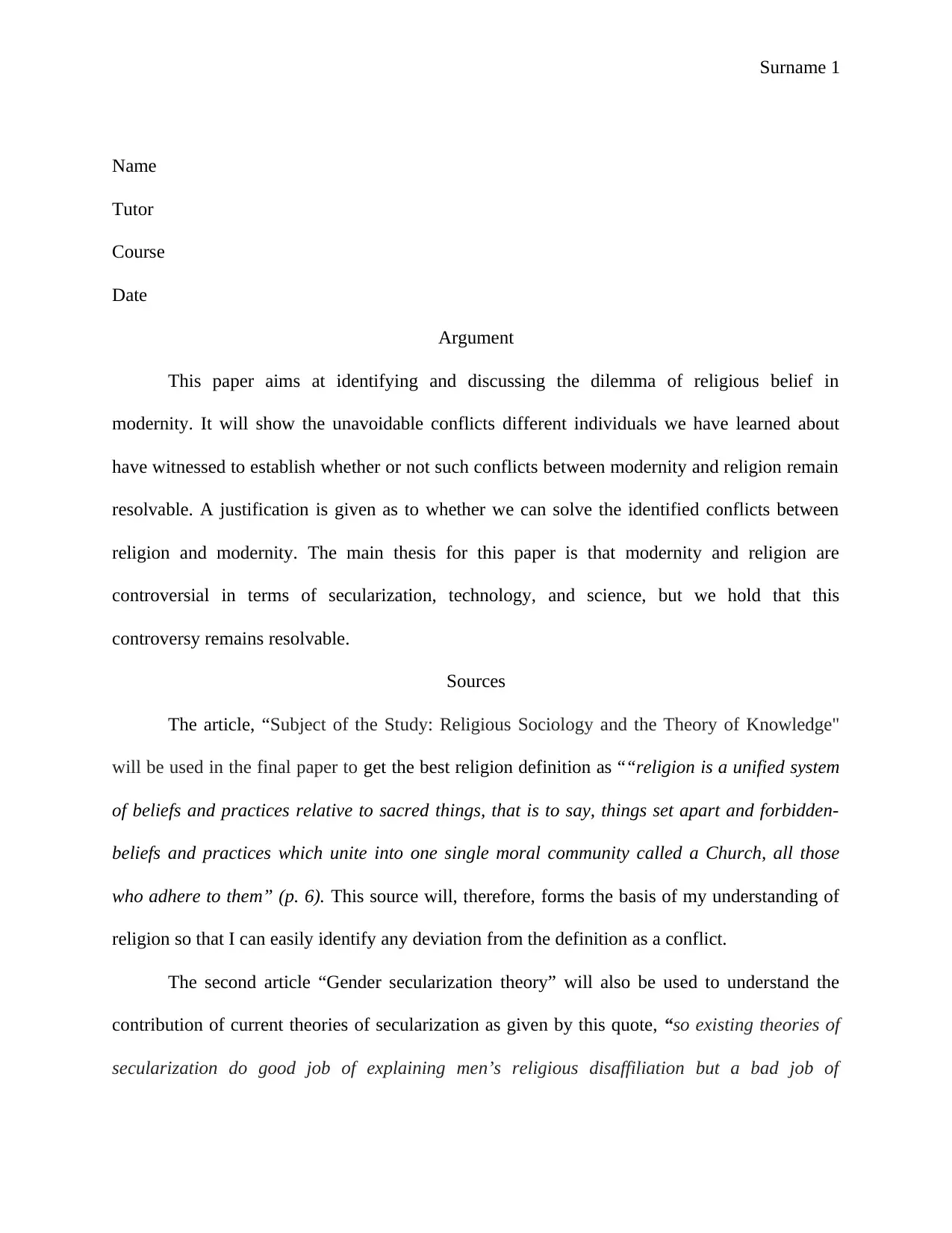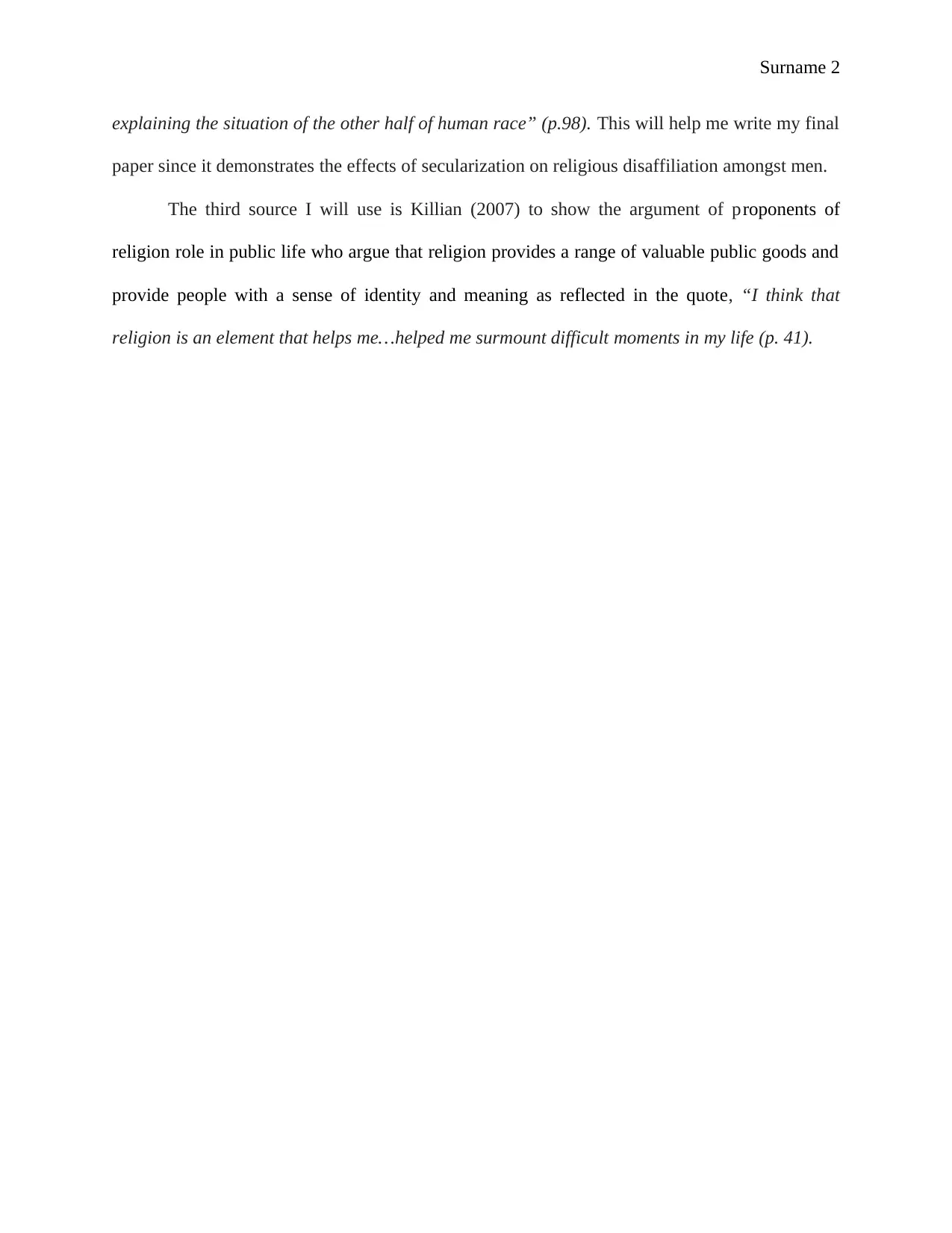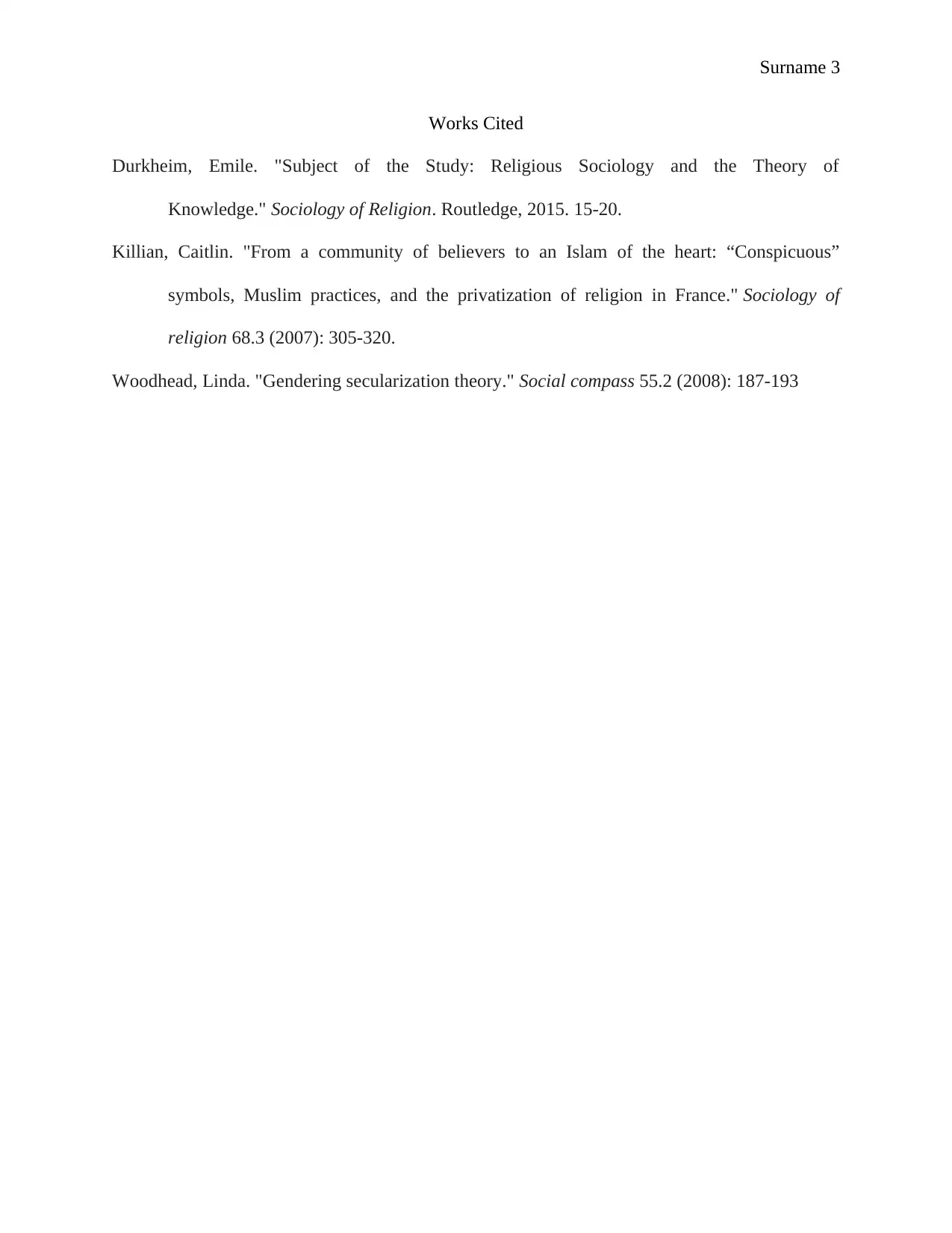Modernity and Religion: Conflicts, Secularization, and Resolutions
VerifiedAdded on 2023/01/17
|3
|461
|23
Report
AI Summary
This report examines the complex relationship between modernity and religion, focusing on conflicts arising from secularization, technology, and science. The author argues that these conflicts are resolvable, providing a detailed analysis of the subject. It utilizes sources such as Durkheim's "Subject of the Study: Religious Sociology and the Theory of Knowledge" to define religion and understand its core tenets. Additionally, it incorporates Woodhead's "Gendering secularization theory" to explore the impact of secularization on religious disaffiliation, and Killian's work to explore the role of religion in public life. The report analyzes the arguments of proponents of religion's role in public life to understand how religion provides a sense of identity and meaning. The author aims to provide a comprehensive understanding of the challenges and potential resolutions in the ongoing debate between modernity and religious belief.
1 out of 3






![[object Object]](/_next/static/media/star-bottom.7253800d.svg)